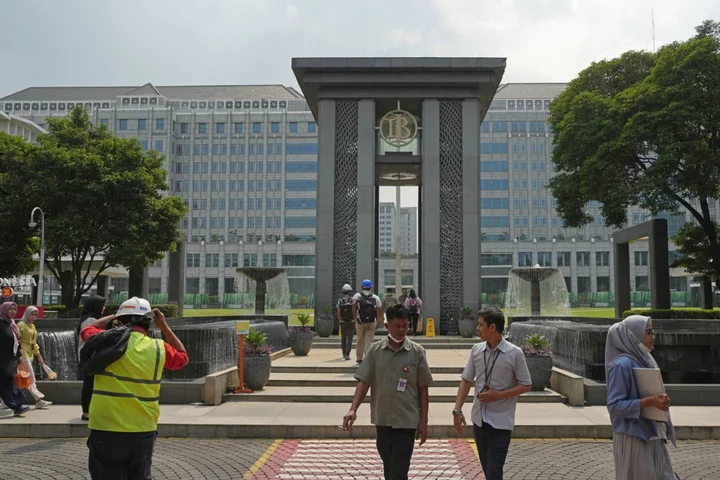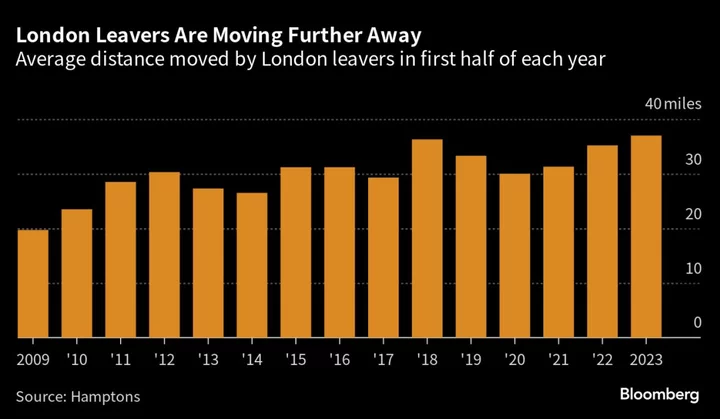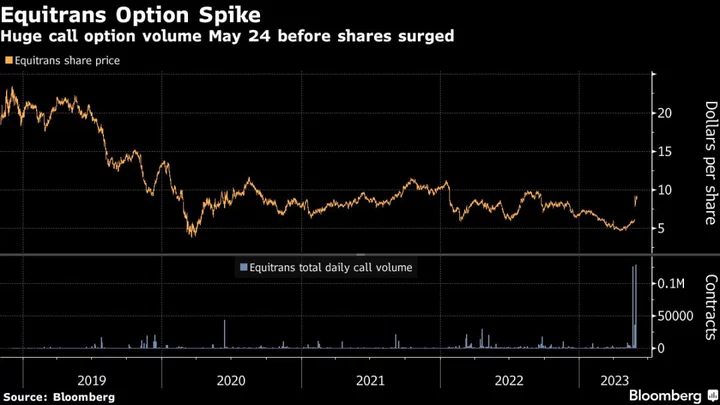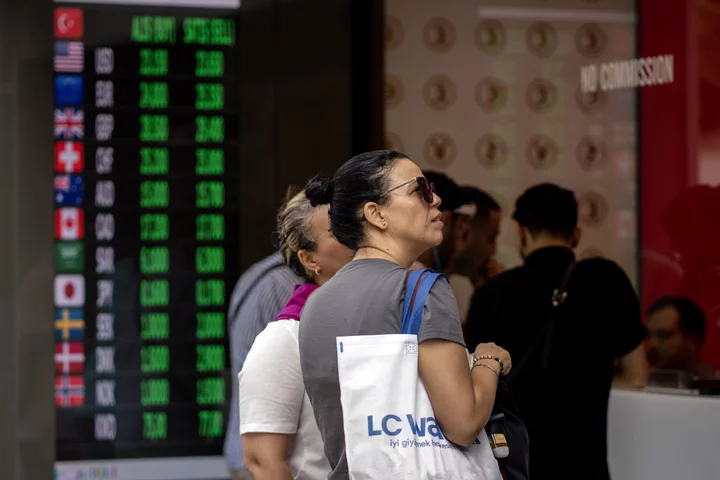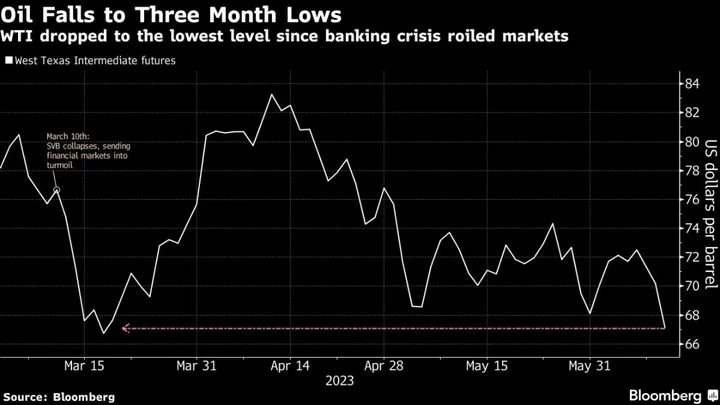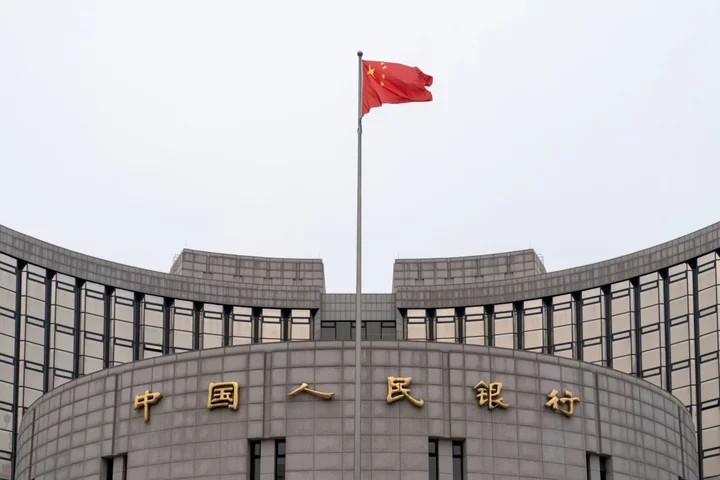Bank Indonesia is issuing new rupiah securities to replace its existing reverse repurchase facility and “Operation Twist” bond sales to provide a more powerful tool for luring foreign funds, according to Governor Perry Warjiyo.
The new instrument called SRBI will be issued starting Sept. 15 and they will substitute the central bank’s reverse repurchase operations for the 6-, 9- and 12-month tenors, Warjiyo said in an investor call on Thursday. It will also expand on their Operation Twist, which only involved the outright selling of government bonds to push up short-term yields.
Read more: Indonesia Taps New Tool to Aid Rupiah as Rates Kept Steady
The SRBI promises more attractive rates as it will be offered through variable rate tender auctions. The papers will also be tradable to both domestic and foreign investors in the secondary market. A similar FX security is in the works, Warjiyo said.
“This is more pro-market,” the governor said during the briefing, which was dominated by questions about the new securities. “This is the new era of Bank Indonesia.”
Backed by as much as 1,100 trillion rupiah in Bank Indonesia’s government bond holdings, the SRBI is aimed at creating a stronger anchor for the rupiah that’s been undercut by outflows, especially as the central bank expects as many as two more interest-rate hikes in the US.
The rupiah sank as much as 0.4% on Friday, ending three days of gains, ahead of a key Federal Reserve meeting at Jackson Hole. Investors have grown lukewarm to Indonesian assets, selling $1.3 billion of bonds and stocks so far this month to weaken the rupiah 1.4%.
Here’s what analysts say:
Josua Pardede, economist at Bank Permata
- The new tool will make Indonesia’s short-term bond yields more attractive to foreign investors, helping boost the currency and replenish the nation’s dollar reserves
Duncan Tan, currency and rates strategist at DBS
- Rupiah will likely rally on expectations of an upturn in foreign inflows
- “From a foreign investor perspective, the securities would offer high carry while taking little duration risks,” he said
Citigroup note
- SRBI will have a wider audience, compared to other open-market operations that’s just for local banks
- That should “eliminate the kink” between the central bank’s OMO curve and short-tenor bonds; the 5-year paper is trading at about 6.3%, well below the 1-year OMO rate of 6.42%
- Citi pushes back expectations of policy rate cuts from late 2023 to 1Q 2024
Euben Paracuelles, economist at Nomura
- SRBI’s impact on inflows is still unclear given narrowing interest rate differentials with the US
- New securities unlikely to affect belly or long end of the bond curve; Nomura retains its long 15-year position on Indonesian government bonds, viewing current levels as an attractive entry point
--With assistance from Matthew Burgess.
(Updates with rupiah movement, analyst comments)

